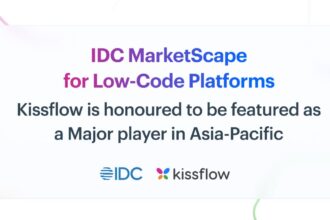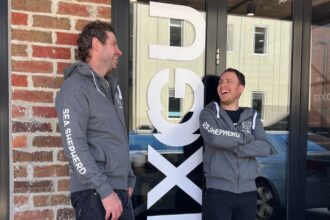In this interview, we have the pleasure of speaking with Rueben, the newly appointed Managing Director of Southeast Asia at Equativ. With a robust background in sales leadership and strategic management roles at top-tier global companies like Quantcast and Yahoo, Rueben brings a wealth of experience to his new position. He shares insights on his career journey, the unique opportunities presented by joining Equativ at this stage, and his perspective on the rapidly evolving AdTech landscape. Rueben also offers valuable advice for those aspiring to make their mark in the industry, emphasizing the importance of adaptability, innovation, and the human element in driving long-term success.
What previous experiences have prepared you for the role of Managing Director SEA at Equativ?
I’ve been fortunate to have held several Sales Director and Country Head roles for renowned global companies, including Quatcast and Yahoo. These positions provided me with valuable insights into the daily responsibilities and challenges faced by the managerial levels above me. This exposure proved to be an invaluable learning experience that has enhanced my professional development and provided me with a range of perspectives that I can now apply to my current role at Equativ.
Joining a company at the market entry stage presents an inestimable opportunity to gain a broad range of relevant experience. Such a position allows one to witness and contribute to the critical decisions made to drive business growth from marketing strategy, operational optimisation, GTM implementation and – most importantly – talent identification when building the local team. I would not have been able to benefit from these experiences if I had joined a more established organization where I am a cog in a machine, no matter how well oiled it may be.
What are the key factors that influenced your decision to join Equativ at this stage of your career?
I have always enjoyed working for companies that are operating in the SEA/APAC market after first establishing themselves in other global regions. It has the feel of working for a startup, where everyone contributes meaningfully to the company’s success, while offering the security that comes with being a long-standing company. If you look at Equativ, we have already built up a stable and profitable organic business across Europe, LATAM, and the US. We are now looking to propel our business to the next phase of growth by complementing this solid foundation with strategic acquisitions, such as the recent merger with Sharethrough. Equativ’s growth strategy and positioning were undoubtedly key factors that appealed to me.
Another critical element that attracted me to the company is its strong commitment to enabling both media buyers and sellers to derive maximum, equitable value from advertising transactions. This is achieved through the provision of flexible, transparent, and cutting-edge solutions – essential in the fast-growing and rapidly evolving industry landscape.
But what truly attracted me to the company wasn’t solely defined by its impressive platform, technology, service quality, processes, back-office operations, and R&D capabilities. Rather, it was the exceptional people; colleagues that share the same values, engagement, team spirit, initiatives, ambitions, and pride to contribute to the growth of the company.
What were your first impressions of Equativ and its culture?
Beyond the business side of things, as mentioned above, what makes Equativ a great company is its people. Throughout my interview process, which included interactions with Arnaud Créput, our CEO, and some of the other executive team members, this feeling shone through very strongly, as did their level of professionalism, convincing me that this was the right team to learn from as I move forward in my career. Now, I hope that I can make my own significant contribution to this culture, especially as our SEA team continues to grow and we have new joiners coming on board.
What do you see as the biggest trends and challenges in the AdTech industry today?
The AdTech space is certainly an interesting place to be right now, given how fast-paced it is and the high level of innovation taking place every day. As I briefly mention above, the market is facing fragmentations, making it ripe for consolidation – the biggest trend, challenge, and opportunity that I see right now. Consolidation is not a negative thing, as integrations are mostly driven by innovation, with multiple companies aiming to create a better way to do things and deliver better results for their clients.
We are at the beginning of the rising curve of retail media (or commerce media being more accurate in its wider vision), with multiple companies working on better privacy-led solutions. Attribution and measurement will need to catch up with some of these big changes, which are driven by a mix of legislation and the acknowledgment that things can be done in a better way. We will eventually see five-six players “win” after the consolidation of the 10-20 in the middle, after which we’ll be able to determine how advertising solutions will evolve and be adopted moving forward.
From a human capital perspective, consolidation does breed the risk of company closures and employment challenges, but I do strongly believe that new companies will pop up to keep challenging the way we do things and continue creating solutions for the better, which means that the best folks will always be in demand in our industry.
Also Read: IAS Welcomes Marc Grabowski as COO and Srishti Gupta as CPO to Drive Innovation
How do you think the industry will evolve in the next five years?
I suppose the next big trend that is clearly impacting our industry (and many others) is the rise of AI and, more specifically, Gen AI. Again, this comes with challenges, but also opportunities. While I see a lot of investment going into AI frameworks and foundations by agencies, brands, and AdTech players themselves, it’s important for us to remember that marketing is actually all about people.
The most memorable ads often stem from a burst of human creativity and the innate creation process. While generative AI can serve as a valuable booster, we cannot rely on it to wholly replace the human element that defines the best advertising. From a glance at the LinkedIn posts on my feed, it’s clear to see that GenAI is creating a middle layer of “sameness”, which means that nothing stands out. So hopefully everyone in the industry understands and realizes that the real differentiating factor will still come from human ingenuity and creativity.
The final point here is the importance of brand awareness to the success of a business in a sustainable way. We can certainly see that the industry has got a bit trapped in the lower funnel game, and that is something that will slowly lose effectiveness as more privacy laws kick in. But this presents an opportunity for brands to invest their resources more strategically in building a long-term identity – one that has the potential to endure for generations, as we’ve seen with many successful companies that have stood the test of time. We are slowly seeing this shift happen, but I think it will pick up steam over the next few years.
What advice would you give to someone looking to pursue a career in AdTech?
The most important piece of advice I would offer is to embrace the fundamental truth that change is the only constant in life. Recognizing this reality is critical for navigating the ever-evolving landscape with resilience and adaptability. This holds true in any tech industry but, with AdTech particularly, change moves incredibly fast. It’s an endless cycle of innovation that leads to the creation of new companies. And companies (or talents) that don’t keep abreast will find themselves in trouble. It requires being curious, to string new bits of information together with context, and to envision how all of that plays out in the real world. But, most importantly, we should never forget that this is a people-first business, and credibility and relationships are the keys to long-term success.
















